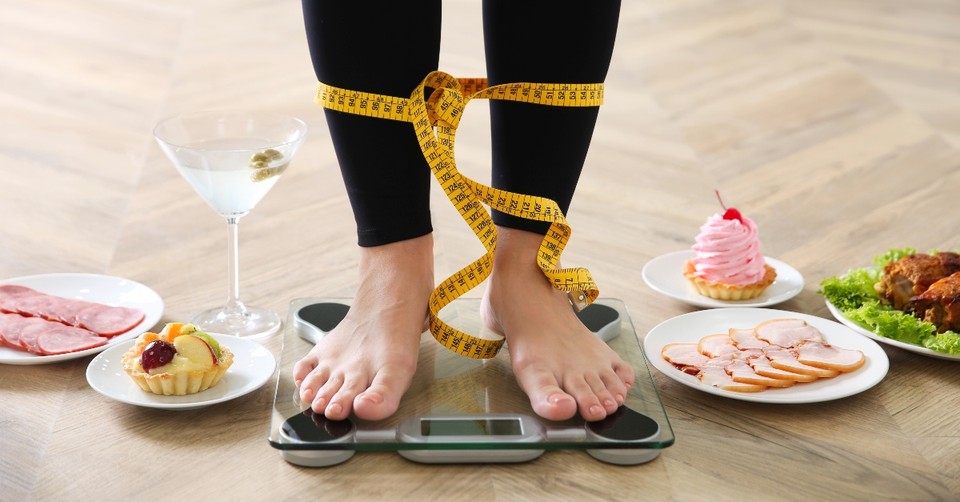21 Ways to Help Your Daughter Develop a Positive Relationship with Food

Our world can be a cold and cruel place when it comes to body image and our relationship with food. Many of us have both good and bad habits that we learned from childhood about food. In today’s society, the pressure to be thin and look perfect is overwhelming. Young women dealing with eating disorders are also a danger to our daughters.
So, how do we ensure our daughters don’t have a negative relationship with food? Here are some tips to help you teach your child about food and how to develop a healthy relationship with it.
1. Talk to your daughter about your own experiences with food.

Talk about your positive and negative experiences with food growing up. If you had negative experiences with people criticizing what you ate or made comments about your weight, acknowledge that. Acknowledging these thoughts, patterns, and beliefs will help you identify negative concepts you may pass on to your children. If recognizing these things is too painful for you, consider seeking therapy to work through it and then talking to your children.
2. Be nice to yourself, or don’t say anything at all.
The road to body acceptance can be a long and rocky one. If you are still trying to make peace with your own body image issues, be sure not to say anything bad about yourself in front of your kids. Saying things like, “I need to get this weight off so I can fit into my swimsuit,” “My enormous stomach makes me look pregnant,” or “I need to stop eating all this excessive sugar.” makes an impression on your child. These thoughts all link negative food and body relationships. Keep these thoughts to yourself and try to give yourself some compassion and kindness.
3. Do a food audit.
Make a list of your favorite foods and foods that you worry about. Think about foods that you label “good” or “bad”? Talk to your partner about their beliefs about food, specifically high calories or energy, and whether they should be in the house. Were they forbidden at home or only used for rewards? Discuss the food patterns you both carry from childhood and ensure you aren’t unintentionally passing them on to your kids. Look at the way you shop and plan meals and see if the beliefs you grew up with still hold true. Gender-specific portions also play into this. Look at how you dealt out portions and considered certain foods forbidden, and see if your thinking changes.
4. Make all foods part of your diet.
Choose one or two nights a week to have those “forbidden foods” you grew up with. This way, it takes away their power. Allow your kids to have dessert once or twice a week. By nestling forbidden foods in with a healthy diet, your kids know what to expect.
5. Eat dinner together.
There are many benefits to eating together as a family. For children, they can talk about their day and anything that is bothering them. As a parent, you get to role model healthy eating behaviors. Having this low-pressure opportunity to connect with their families around food helps teens avoid high-risk behaviors and elevates high self-esteem in children.
6. Exercise for fun.
Don’t exercise to burn calories or eat more food later. Instead, make it fun for the whole family.
7. Don’t reprimand your children for what they eat.
If you have a teen that is a junk food junkie or eats less nutritious food than you would like, don’t reprimand them, no matter how much you disagree.

Photo credit: ©GettyImages/gpointstudio
8. Don’t use food as rewards or punishments.
Saying things like, “If you eat your vegetables, you can have a piece of cake,” is not helpful.
9. Expose your children to lots of different foods.
Serve different foods, including fruits and veggies often, but don’t require your kids to eat them.
10. Be a role model with new foods.
Be sure to try a lot of new foods yourself.
11. Create new, positive food themes.
Make eating together fun by having themed dinner nights like Taco Tuesday, Meatless Monday, Fish Fry Friday, and Souper Saturday.
12. Take your daughter shopping.
Take your kids with you to the grocery store and teach them about healthy foods and eating the foods they love but aren’t the best for them in moderation. Pick a food or two they haven’t tried before and talk to them about it at the store. What it is, what it tastes like, what its textures are, and things like that. Encourage their acceptance of new and diverse foods.
13. Cook with your daughter.
Teach your daughter how to cook with fresh, healthy ingredients. Introduce her to different ingredients she’s never tried before. Make it a fun experience.

14. Teach your daughter that food is fuel.
Teach them that food will help fuel their day and help them grow big and strong. This eliminates the misconception that one type of food won’t cause them to be healthy or unhealthy.
15. Ask her questions.
Kids know when they are hungry or full, so don’t force them to eat more than they want. Ask them questions about the food they are eating, like if they like it or not, how it makes them feel, and if they are still hungry.
16. Respect their hunger levels.
Sometimes kids are hungry, and sometimes they aren’t. I used to see this in daycare all the time. I had good eaters, kids that ate little, and picky eaters. These are okay. Don’t make your kids clean their plates; this causes them to ignore when they are naturally full and can influence eating habits later in life.
17. Encourage body neutrality.

Instead of focusing on body positivity, focus on body neutrality, which is the concept of teaching that our bodies are amazing and based solely on their functions. Our bodies allow us to play sports, engage in our favorite hobbies, and hug our loved ones. Ensure your kids know they are more than just their body, but avoid talking about weight.
18. Teach your daughter how to bake using healthier ingredients.
We all have a sweet tooth now and then, some of us more than others. Homemade baked goods are better for us to an extent because we know what goes in them compared to what we buy in stores. Even though we need to eat sweets in moderation, we can make them healthier by using substitutes like applesauce for the oil in our recipes, sugar substitutes, and looking for low-carb and sugar-free dessert recipes.
Related Podcast:
19. Give less food than what you think she will eat.
Serve your child less food than you think she will eat, and let her ask for more food if she is hungry.
20. Serve food on small plates.
If you serve meals on smaller plates, you can subconsciously instill portion control without talking about it.
21. Consider team work.
If your daughter is having a hard time developing a healthy relationship with food, it may be necessary to go the extra mile and consider a team approach. You may need to consider a registered dietitian, a mental health provider, and lots of support from family and friends.
Having a positive relationship with food is a lifelong journey for most people. Using the tips above, we can help ensure that our daughters have a positive relationship with food starting in childhood.
Related: How to Help Your Kids Have a Healthy Relationship with Food

Originally published March 25, 2024.







